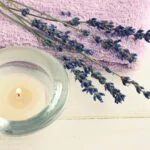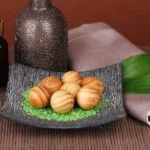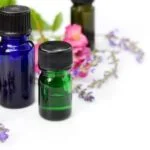According to numerous studies, aromatherapy has been found to be a highly effective method for alleviating anxiety and promoting relaxation. By utilizing the power of essential oils, aromatherapy provides a natural and holistic approach to managing and reducing anxiety symptoms. In this article, we will explore the various aromatherapy oils that are particularly beneficial for anxiety relief, as well as the science behind how these oils influence our emotional well-being.
Anxiety is a common condition that affects millions of people worldwide. It can manifest in various ways such as excessive worrying, restlessness, irritability, and difficulty concentrating. While there are several conventional treatments available, many individuals seek alternative methods to manage their anxiety without relying on medications or therapies.
This is where aromatherapy comes into play. Aromatherapy involves the use of essential oils extracted from plants to promote physical and psychological well-being. These oils can be inhaled directly or used topically through massage or diffusion techniques. They work by stimulating certain receptors in our brain that are responsible for regulating emotions and mood.
By understanding the scientific basis behind aromatherapy’s effectiveness for anxiety relief, we gain insight into why these essential oils have such a profound impact on our emotional well-being. Through this exploration, we can discover which specific oils are most beneficial for reducing anxiety symptoms and promoting inner peace and calmness. So let us delve into the world of aromatherapy and explore the incredible potential it holds for anxiety relief.
Exploring the Science Behind Aromatherapy
Aromatherapy is a powerful tool for anxiety relief, and understanding the science behind it can help us fully appreciate its benefits. Essential oils, the main components of aromatherapy, have been found to influence our emotional well-being in various ways.
Firstly, essential oils can directly affect our brain and nervous system. When inhaled, the molecules from the oils travel through the olfactory system and reach the limbic system, which is responsible for regulating emotions and memories. This direct pathway allows essential oils to have a quick and profound impact on our emotional state.
Secondly, certain essential oils have been found to interact with neurotransmitters in the brain. For example, lavender oil has been shown to increase the levels of serotonin, a neurotransmitter that helps regulate mood and emotions. This increase in serotonin can promote feelings of relaxation and calmness, making lavender an effective oil for anxiety relief.
Additionally, essential oils can also influence our physiological responses to stress. When we are anxious or stressed, our body goes into a “fight-or-flight” response characterized by increased heart rate, elevated blood pressure, and shallow breathing. Research suggests that certain essential oils like chamomile and bergamot can help lower these physiological responses by activating the parasympathetic nervous system, which promotes relaxation.
| Essential Oils | Effect on Emotional Well-Being |
|---|---|
| Lavender | Promotes relaxation and calmness by increasing serotonin levels |
| Chamomile | Helps lower physiological responses to stress by activating the parasympathetic nervous system |
| Bergamot | Boosts mood and alleviates anxiety symptoms by modulating physiological responses to stress |
Lavender
The scent of lavender has been shown to activate certain brain receptors, such as GABA-A receptors, which are responsible for promoting relaxation and reducing feelings of anxiety. In fact, several studies have demonstrated the anxiolytic effects of lavender, with some even suggesting that it may be as effective as prescription medications in treating generalized anxiety disorder.
There are several ways to incorporate lavender into your aromatherapy routine. Inhalation is one of the most common methods, which can be achieved by adding a few drops of lavender oil to a diffuser or inhaling directly from the bottle. This allows the aromatic molecules to enter your nasal passages and stimulate your brain’s emotional centers.
Another popular method is through massage therapy. By diluting lavender oil with a carrier oil, such as almond or jojoba oil, you can apply it topically and enjoy its relaxing benefits during a massage session. The combination of touch and scent can provide a holistic approach to reducing anxiety and promoting overall well-being.
Lastly, you can also use lavender oil in a warm bath or as a bedtime ritual by adding a few drops to your pillow or bed sheets. This allows you to enjoy its calming effects before bedtime, helping you unwind and achieve a more restful sleep.
Chamomile
When it comes to using aromatherapy oils for anxiety relief, chamomile is a top contender. Known for its calming and soothing properties, chamomile essential oil has been used for centuries to promote relaxation and alleviate symptoms of anxiety.
Chamomile oil is derived from the flowers of the Chamomile plant, specifically the German Chamomile (Matricaria chamomilla) or Roman Chamomile (Chamaemelum nobile) varieties. It is known for its sweet and floral scent, which can help create a peaceful atmosphere and induce feelings of tranquility.
One of the main compounds in chamomile oil responsible for its anxiety-reducing effects is bisabolol. This compound has been shown to have anti-inflammatory and anti-anxiety properties. When inhaled or applied topically, chamomile oil with bisabolol can help calm the mind, reduce stress, and promote relaxation.
How to Use Chamomile Essential Oil
There are several ways to incorporate chamomile essential oil into your daily routine to help manage anxiety and promote relaxation:
1. Inhalation: Add a few drops of chamomile oil to a diffuser or inhale directly from the bottle. Alternatively, you can add a drop of chamomile oil to a tissue or cotton ball and place it near your pillow while sleeping.
2. Massage: Dilute chamomile oil with a carrier oil such as jojoba or coconut oil and use it for a soothing massage. Apply the mixture onto your temples, neck, or any areas where you feel tension or anxiety.
3. Bath: Add a few drops of chamomile essential oil to warm bathwater for a calming and relaxing experience. The steam will allow the aroma of chamomile to surround you, providing a sense of tranquility.
Overall, chamomile essential oil can be a valuable tool in managing anxiety and promoting relaxation. Its soothing scent and calming properties make it an excellent choice for those seeking natural ways to alleviate stress and promote inner peace.
Bergamot
One of the key components of bergamot oil is its unique chemical composition, which includes compounds like limonene and linalool. These compounds have been found to have calming effects on both the mind and body. Research has shown that inhalation of bergamot essential oil can help lower blood pressure, heart rate, and cortisol levels – all indicators of stress reduction.
In addition to its physiological benefits, bergamot also has profound effects on mood. Its refreshing and invigorating aroma can help boost mood and alleviate symptoms of depression and anxiety. Studies have shown that inhaling bergamot oil can stimulate the release of certain neurotransmitters in the brain, such as serotonin and dopamine, which are responsible for regulating mood and emotions.
Combining Bergamot Oil With Other Essential Oils
For enhanced anxiety relief, bergamot essential oil can be combined with other oils known for their calming properties. Lavender and chamomile are two popular choices that blend well with bergamot to create a soothing aroma that promotes relaxation. This combination can be diffused throughout your home or added to a carrier oil for a calming massage.
Another effective combination is bergamot with frankincense. Frankincense is renowned for its grounding properties, making it an ideal partner for bergamot in promoting emotional balance during times of stress or anxiety.
Ways to Use Bergamot Essential Oil
There are various ways you can incorporate bergamot essential oil into your daily routine. Inhalation is one of the most common methods and can be done by placing a few drops of the oil on a tissue or using a diffuser. You can also add bergamot oil to your bath water for a relaxing soak, or dilute it in a carrier oil and use it for massage.
It’s important to note that while bergamot essential oil has many benefits, it should be used with caution as it can cause photosensitivity. This means that if applied topically, it can make your skin more sensitive to sunlight and increase the risk of sunburn. Therefore, it is recommended to avoid exposure to direct sunlight or UV rays for at least 12 hours after applying bergamot oil topically.
Ylang Ylang
One of the main benefits of Ylang Ylang oil is its ability to destress the mind and body. Its soothing aroma can help calm racing thoughts, slow down breathing, and lower heart rate, making it an excellent choice for anxiety relief. The aroma of Ylang Ylang has also been known to have aphrodisiac properties, promoting feelings of sensuality and intimacy.
In addition to its calming effects on the mind, Ylang Ylang oil is also believed to have positive effects on emotional well-being. It can help balance mood swings, alleviate feelings of sadness or anger, and promote a sense of inner peace and harmony. This makes it a valuable tool for those dealing with anxiety or emotional turbulence.
When using Ylang Ylang oil for anxiety relief, there are several methods you can explore. Inhalation is one effective way to experience its benefits – simply add a few drops of the oil to a diffuser or inhale directly from the bottle.
You can also create a relaxing massage blend by diluting a few drops of Ylang Ylang oil with a carrier oil like coconut or jojoba oil. Applying this blend to your neck, wrists, or chest can help alleviate feelings of anxiety throughout the day.
Frankincense
One of the key benefits of frankincense is its ability to promote relaxation and reduce symptoms of anxiety. The aroma of frankincense has a grounding effect on the mind and body, helping to quiet racing thoughts and induce a sense of calmness. It can be particularly beneficial for individuals who experience anxiety related to stress or emotional imbalances.
In addition to its anxiety-relieving properties, frankincense is also known for its ability to promote spiritual healing. In ancient times, it was often used during meditation or religious ceremonies to deepen one’s connection with spirituality. The scent of frankincense is said to help quiet the mind, enhance focus, and create a sense of sacredness in the environment.
There are several ways to incorporate frankincense into your aromatherapy routine for anxiety relief. One effective method is inhalation. You can add a few drops of frankincense oil to a diffuser or inhaler and inhale deeply whenever you feel anxious or overwhelmed. This allows the aroma molecules to enter your respiratory system and travel directly to your brain, where they can have a calming effect on your emotions.
Another way to enjoy the benefits of frankincense is through massage. Dilute a few drops of frankincense oil in a carrier oil such as jojoba or coconut oil and massage it onto your skin, focusing on areas where you hold tension or experience physical discomfort due to anxiety.
Lastly, diffusion is another popular technique for using frankincense oil. Add a few drops to a diffuser filled with water and let the scent disperse throughout your living space. This not only creates a pleasant aroma but also helps to create a peaceful and serene atmosphere that can support relaxation and emotional well-being.
While frankincense is generally considered safe for most individuals, it’s important to take some precautions when using this essential oil. Always dilute it before applying it to your skin, as it can be irritating in its pure form. If you have sensitive skin, consider doing a patch test first to ensure you don’t have any adverse reactions. Additionally, if you’re pregnant or nursing, consult with a healthcare professional before using frankincense oil.
Vetiver
One of the main reasons why vetiver is effective at reducing anxiety is its grounding properties. Anxiety often leaves individuals feeling ungrounded and disconnected from their surroundings. Vetiver can help bring them back into the present moment by instilling a sense of stability and balance. Its rich aroma can create a feeling of being anchored, allowing individuals to feel more centered and less overwhelmed by their anxious thoughts.
In addition to its grounding effects, vetiver also has calming properties that can contribute to its anxiety-relieving abilities. When inhaled or applied topically, this oil has a soothing effect on the nervous system, helping to reduce feelings of restlessness and promote a sense of calmness. Vetiver is particularly beneficial for individuals who experience racing thoughts or find it difficult to relax due to anxiety.
There are several ways in which you can incorporate vetiver into your aromatherapy routine for anxiety relief. One popular method is inhalation. You can add a few drops of vetiver oil to a diffuser or inhale directly from the bottle when you feel anxious or stressed. Another option is using vetiver as a massage oil. Dilute a few drops with a carrier oil such as coconut oil and apply it to your skin during a relaxing massage session.
It’s important to note that while vetiver is generally considered safe for most people when used topically or aromatically, it’s always recommended to perform a patch test before use and consult with a healthcare professional if you have any underlying medical conditions or are pregnant or breastfeeding.
Overall, vetiver is an excellent choice for individuals seeking grounding and calmness in the face of anxiety. Its earthy aroma can help to center the mind, creating a sense of stability and peace. By incorporating vetiver into your aromatherapy routine, you can harness its powerful properties and find relief from anxiety symptoms.
Neroli
The Uplifting Properties of Neroli
One of the key benefits of neroli is its ability to uplift mood and reduce anxiety. The sweet, citrusy scent of this essential oil stimulates the release of serotonin, a neurotransmitter responsible for promoting feelings of happiness and well-being. Research has shown that inhaling neroli oil can have an immediate uplifting effect on mood, making it an excellent choice for those experiencing stress or anxiety.
Moreover, neroli also possesses calming properties that help ease nervous tension and promote relaxation. The soothing aroma of this oil has a harmonizing effect on the nervous system, helping to alleviate feelings of restlessness and agitation. By using neroli in your aromatherapy routine, you can create a tranquil environment conducive to reducing anxiety and promoting a sense of inner peace.
How to Use Neroli for Anxiety Relief
There are several ways you can harness the uplifting properties of neroli to reduce anxiety and elevate your mood. Inhalation is one simple yet effective method. You can add a few drops of neroli essential oil to a diffuser or inhaler and breathe in deeply. This allows the aromatic molecules to enter your bloodstream through your respiratory system, providing almost instant relief from anxiety symptoms.
Another popular method is incorporating neroli into massage therapy. Mix a few drops of neroli with a carrier oil such as jojoba or almond oil and gently massage it onto your body. The combination of the soothing touch of massage and the calming scent of neroli can help relax tense muscles, reduce stress levels, and promote a sense of well-being.
Patchouli
The Scent of Serenity
The unique aroma of Patchouli essential oil is what sets it apart from other oils commonly used for anxiety. Its deep, earthy, and musky scent has a calming effect on the mind, helping to reduce feelings of restlessness and promote inner peace. This makes Patchouli an excellent choice for those who struggle with racing thoughts or an overactive mind.
Quieting the Mind
Patchouli essential oil is especially beneficial for those experiencing anxiety-related sleep problems or insomnia. Its sedative properties help to induce a sense of relaxation, making it easier to fall asleep and experience a restful night’s rest. By quieting the mind and promoting deep relaxation, Patchouli can also be helpful during times of stress or overwhelm.
A Versatile Oil for Anxiety Relief
In addition to its calming effects on the mind, Patchouli essential oil also provides emotional support during periods of anxiety. It can help to alleviate feelings of nervousness or unease by grounding emotions and promoting a sense of stability. Whether used topically in massage oils or applied through inhalation techniques such as diffusion or steam inhalation, Patchouli can be incorporated into various self-care rituals to effectively manage anxiety symptoms.
Overall, Patchouli essential oil offers unique benefits that make it an excellent choice for enhancing serenity and quieting the mind in moments of anxiety. Its distinct aroma and therapeutic properties have made it a valuable tool in aromatherapy practices, offering individuals a natural and holistic approach to finding inner peace and calmness.
Best Ways to Use Aromatherapy Oils for Anxiety
Using aromatherapy oils can be an effective way to manage anxiety and promote a sense of calmness and well-being. One of the most common methods of using these oils is through inhalation. Inhalation allows the aroma of the oil to enter the bloodstream through the lungs, where it can have a direct impact on the brain and nervous system.
There are several ways to inhale essential oils for anxiety relief. One method is to use a diffuser or vaporizer, which disperses the oil into the air as fine mist or vapor. This allows you to breathe in the beneficial properties of the oil throughout the day. Another popular technique is to add a few drops of oil to a tissue or handkerchief and inhale deeply whenever you feel anxious or stressed.
Massage is another effective way to use aromatherapy oils for anxiety. By combining essential oils with carrier oils such as coconut or jojoba oil, you can create a relaxing massage blend that not only helps ease tension in your muscles but also promotes emotional well-being. When massaged into the skin, the oils are absorbed into the bloodstream, where they can work their magic on your nervous system.
Diffusion techniques involve using devices such as reed diffusers or clay pendants that allow essential oils to slowly evaporate into the air and fill your surroundings with their calming scent. These techniques are perfect for creating a peaceful atmosphere in your home or office, helping you stay grounded and centered throughout the day.
| Inhalation | Massage | Diffusion |
|---|---|---|
| Inhaling through a diffuser or vaporizer | Using essential oils in a massage blend | Using reed diffusers or clay pendants |
| Inhaling from a tissue or handkerchief | Applying the massage blend to the skin | Allowing oils to slowly evaporate into the air |
Precautions and Safety Tips When Using Essential Oils for Anxiety Relief
As with any form of treatment, it is important to exercise caution and follow safety guidelines when using essential oils for anxiety relief. While aromatherapy can be a beneficial and natural way to alleviate anxiety symptoms, it is crucial to use these oils responsibly to ensure your well-being. Here are some precautions and safety tips to keep in mind when incorporating essential oils into your anxiety relief routine.
Firstly, it is essential to remember that essential oils are highly concentrated substances and should never be applied directly to the skin without dilution. It is recommended to mix the oil with a carrier oil, such as coconut or jojoba oil, before applying it topically. This helps prevent any skin irritation or allergic reactions that may occur.
Additionally, there are certain essential oils that may not be suitable for everyone, especially those with certain medical conditions or sensitivities. Before using any new essential oil, it is advisable to do a patch test on a small area of your skin to check for any adverse reactions. If you experience redness, itching, or swelling, discontinue use immediately.
Furthermore, pregnant women should exercise caution when using essential oils as some oils may have contraindications during pregnancy. It is best to consult with a healthcare professional before incorporating any new aromatherapy practices into your routine during pregnancy.
Lastly, if you have pets in your home, be mindful of their sensitivity to certain essential oils. Some pets can have adverse reactions or respiratory issues when exposed to specific scents. Always do thorough research or consult with a veterinarian before diffusing any essential oils in spaces where your pets reside.
By following these precautions and safety tips, you can safely incorporate aromatherapy into your anxiety relief routine and unleash the remarkable benefits of these powerful natural remedies. Remember that each individual’s response to essential oils may vary, so it is always important to listen to your body and adjust accordingly.
Conclusion
In conclusion, aromatherapy can be a powerful tool for anxiety relief and promoting emotional well-being. The essential oils discussed in this article have been proven to have calming and mood-enhancing properties, making them effective remedies for managing anxiety symptoms.
Lavender is undoubtedly the ultimate anxiety buster and stress reliever due to its soothing scent and ability to promote relaxation. Chamomile, on the other hand, offers a gentle and calming aroma that helps soothe anxiety and promote a sense of tranquility. Bergamot, with its citrusy scent, can boost mood and alleviate anxiety symptoms by energizing the mind and uplifting the spirits.
Ylang Ylang provides a sweet and floral oil option that can destress and balance emotions. Frankincense taps into ancient wisdom to relieve anxiety and promote spiritual healing. Vetiver offers grounding and calming effects on the mind with its earthy fragrance. Neroli harnesses the uplifting properties of orange blossoms to reduce anxiety and elevate mood. Patchouli’s unique aroma enhances serenity and quiets the mind.
When incorporating aromatherapy into your routine, it is essential to consider various techniques such as inhalation, massage, or diffusion to maximize its effectiveness. Each individual may respond differently to different oils, so it is important to find your perfect oil for inner peace and calmness through personalization.
However, it is crucial to exercise caution when using essential oils for anxiety relief. Precautions such as diluting oils properly before topical use, avoiding ingestion without professional guidance, conducting patch tests for skin sensitivity are all necessary steps in ensuring safety when using these powerful oils.
Frequently Asked Questions
Do Aromatherapy Oils Help With Anxiety?
Aromatherapy oils have been known to provide some relief for anxiety, although their effectiveness may vary from person to person. Certain essential oils like lavender, chamomile, and bergamot are commonly used in aromatherapy to help with anxiety symptoms. These oils are believed to have calming properties that can promote relaxation, reduce stress levels, and improve overall well-being.
Some individuals find the soothing scents of these oils helpful in reducing their anxiety symptoms and achieving a sense of calmness. While aromatherapy oils may not be a standalone solution for managing anxiety, they can complement other anxiety management techniques and contribute to an overall sense of relaxation.
What Oils Help Anxiety and Depression?
When it comes to anxiety and depression, there are several essential oils that may provide relief or help alleviate symptoms. Lavender oil is often recommended due to its calming properties and potential to reduce both anxiety and depressive symptoms. Another oil that is frequently used is chamomile oil, which has been associated with promoting relaxation and relieving stress-related symptoms.
Additionally, bergamot oil may help lower anxiety levels by promoting a positive mood and easing tension. While these oils may show promising results for some individuals in managing their anxiety and depression, it’s important to remember that everyone responds differently, so it’s best to experiment with different oils under professional guidance or supervision.
What Are Some Anxiety Relieving Skills?
There are various skills and techniques that can be helpful in relieving anxiety. One widely recognized skill is deep breathing, where you take slow, deep breaths in through your nose while counting to four, hold the breath for a moment, then exhale slowly through your mouth while counting again. This technique can help activate the body’s relaxation response and calm anxious thoughts.
Another effective skill is progressive muscle relaxation (PMR), which involves tensing and releasing different muscle groups systematically throughout the body to promote physical relaxation and reduce muscular tension caused by anxiety. Mindfulness meditation is also often recommended as a way to focus on the present moment and cultivate a sense of calmness. Lastly, engaging in regular physical exercise, maintaining a balanced diet, getting enough sleep, and seeking support from friends, family, or professionals can all contribute to managing anxiety and promoting overall well-being.

Are you looking for a natural way to improve your health and wellbeing?
If so, aromatherapy may be the answer for you.






